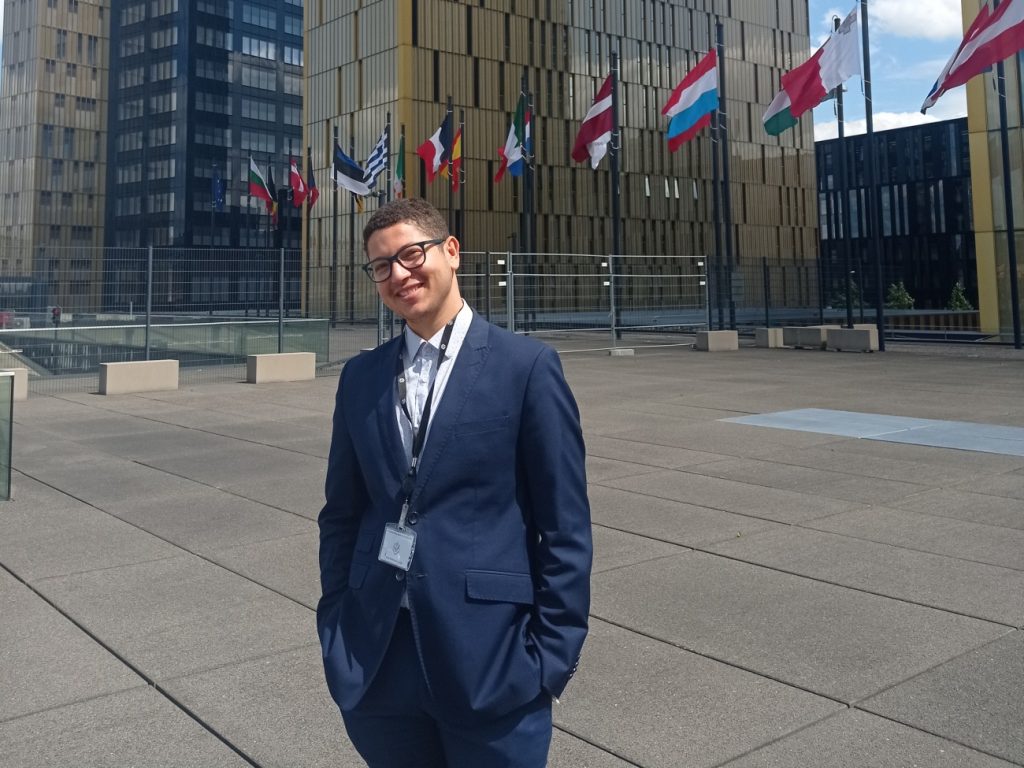16/12/2021
Marouanne Laabbas el Guennouni, predoctoral researcher on the Doctoral Programme in Law
“At the Court of Justice of the European Union I was able to work side by side with the judges”

Marouane Laabbas el Guennouni is an example of what students can achieve in European institutions because between March and July of this year he undertook a paid internship at the Court of Justice of the European Union in Luxembourg. There, he was responsible for compiling the legal doctrine that would guide judges in resolving cases. He is this year's UNICAT ambassador for the URV, a figure that exists in Catalan universities to inform students about job and internship opportunities in the EU.
Marouane Laabbas el Guennouni is this year’s UNICAT ambassador for the URV, a figure that exists in Catalan universities to inform students about job and internship opportunities in the European Union (EU). He is an example of what students can achieve in European institutions because between March and July of this year he undertook a paid internship at the Court of Justice of the European Union (CJEU) in Luxembourg.
What do you propose to do as UNICAT ambassador at the URV?
I want to provide students with access to information on internship and job offers at European institutions, to encourage Catalan students to join these institutions and, above all, to show them that it is possible to work there, as I have been able to do, and that there is room for people with diverse training profiles, such as the health sciences, communication, education, engineering, architecture, languages and law
How can interested students find you?
I will regularly send them the bulletin of opportunities that is produced by the UNICAT ambassadors of the Catalan universities at different times of the year and they can contact me at ambaixador.unicat@urv.cat.
You are an example of what a URV student can achieve at European institutions. What work did you do at the Court of Justice of the European Union?
I worked in the Directorate of the CJEU Library helping to keep the judges and staff up to date with the decision-making process. On the one hand, I was in charge of selecting the articles of legal doctrine that could provide guidance on the different cases that come before the Court or on new issues for which it is necessary to generate knowledge in a very short period of time. On the other hand, I was in charge of finding all of the doctrine relating to specific cases so that this could be extrapolated to the complex cases dealt with by the Grand Chamber of the Court. For example, I worked on the case of the Superleague that various football clubs wanted to create outside UEFA and where the role of CJEU was to determine whether UEFA had infringed the EU competition law.
Why is international experience so important?
It allows you to get to know the world. On a personal level, you get out of your comfort zone, you face new experiences, perhaps with difficulty at first, but then you learn to adapt and you start to enjoy yourself. Professionally you see different ways of doing things. What’s more, in European institutions, where the people who work there and stay there are from different countries, you experience what is called “European bubble” and it’s incredible. For example, I don’t like football but I used to go to watch the games just to experience the atmosphere. I think that an experience like this makes you grow and improve because you learn from many different people
